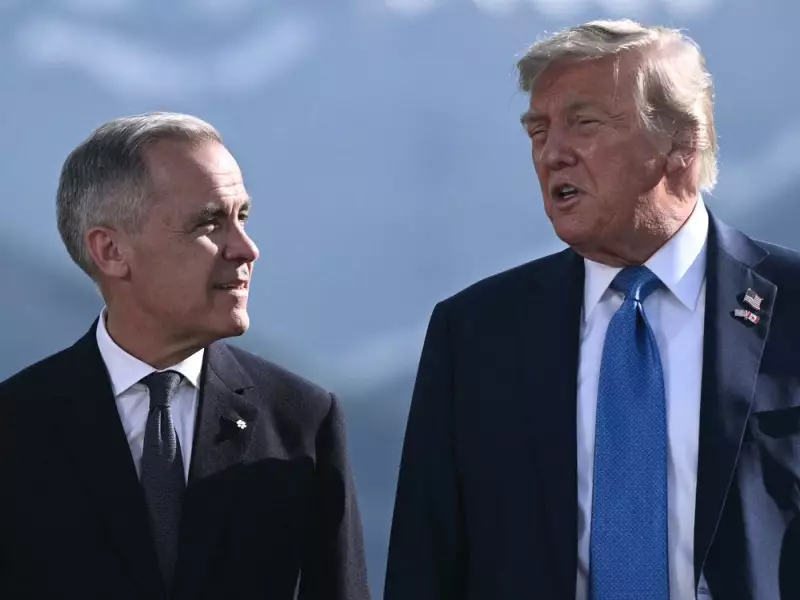
The looming specter of Donald Trump's potential return to the White House is sending shockwaves through Canadian economic circles, with former Bank of England Governor Mark Carney emerging as a vocal critic of the Republican candidate's aggressive trade agenda.
Economic Warning From Financial Heavyweight
Mark Carney, the Canadian economist who once helmed both the Bank of Canada and the Bank of England, has launched a scathing critique of Donald Trump's proposed tariff policies. Speaking with growing concern, Carney highlighted the severe consequences that blanket tariffs could have on the delicate ecosystem of North American trade.
"These aren't targeted measures; they're economic blunt instruments," Carney emphasized during recent remarks, pointing to the potential for widespread price increases and supply chain chaos that would hurt consumers and businesses on both sides of the border.
Canadian Business Community Braces for Impact
The commercial real estate sector and export-dependent industries are particularly vulnerable to the proposed 10% universal tariff and more than 60% levy on Chinese goods. Industry leaders are quietly developing contingency plans while publicly urging for calm and continued dialogue between Ottawa and Washington.
"The integrated nature of our economies means pain on one side quickly becomes pain on both sides," noted one Toronto-based financial analyst who requested anonymity due to the sensitivity of ongoing trade discussions.
What Trump's Tariff Plan Entails
- Universal 10% tariff on all imports
- Over 60% tariffs specifically targeting Chinese goods
- Potential retaliatory measures from trading partners
- Increased consumer prices across multiple sectors
The Broader Implications for North American Trade
Beyond the immediate economic concerns, experts worry that a new wave of U.S. protectionism could fundamentally reshape the trading relationship that has defined North American prosperity for decades. The USMCA, which replaced NAFTA, was supposed to provide stability, but these proposed policies threaten to undermine that foundation.
Carney's intervention carries significant weight given his unique position as both an internationally respected central banker and a Canadian with deep understanding of cross-border economic dynamics. His warning serves as a stark reminder that campaign rhetoric can quickly become market-moving reality.
As the U.S. election approaches, Canadian officials and business leaders are watching developments with increasing apprehension, hoping for a resolution that preserves the fragile balance of continental trade while preparing for potential turbulence ahead.





